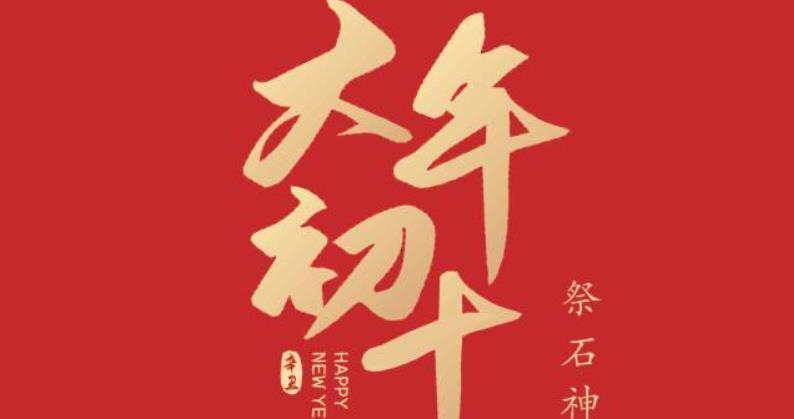
Tomorrow is the tenth day of the first lunar month, and many people have bid farewell to the atmosphere of the Spring Festival and started working. However, most of the ancient Spring Festivals will not start until after the tenth day of the first month, and some areas will wait until after the fifteenth Lantern Festival of the first month. The first day of the first lunar month to the tenth day of the first lunar month is given a special folk meaning in the folk, and the tenth day of the first lunar month is called "earth day". That is, the birthday of the earth, the ancients had a saying on this day that "ten do not move, the year is not empty".
Ancient folk customs usually taboo two things, one is not to move any stone tools, the other is not to use needle and thread. In order to avoid the taboo as much as possible in the first ten years, the housewife would cover the mill with a cloth the night before and pack the needle and thread dustpan in a cabinet or box. So this day in ancient times is a very pleasant day, in addition to the dumplings for the festival, almost no labor, although grinding is rare, but some areas still retain the custom of not moving needle and thread, so a few areas in ancient times are also called "Women's Day". However, this "ten immovable" is really not very impressive, what ten things can not be moved? It turns out that the so-called "ten immovable" is actually a harmonic sound of "stone immovable", because the ancients believed that this day was the birthday of the stone god, so it was also called "stone festival". The ancients could neither grind nor needle and thread on this day, and it is believed that if a taboo is committed, it will affect the harvest of crops in the new year.
The traditional customs of the Spring Festival are the most numerous, especially the various taboos that make us eye-opener, it is not easy to avoid all taboos perfectly, these taboos exist almost every day, and some places even last until the end of the month or even the beginning of February. This "ten immovable" is obviously also one of the taboos. In addition to the taboo, but also because of the harmonic derived from many related customs, such as ten, stone, real, food, because of these harmonic sounds, the first ten said a lot more, in addition to the above mentioned earth day, there are stone immovable, stone grinding birthday, stone god birthday. In addition, "ten days" and "real days" are also its names. Since the festival is even less difficult to eat, many places also celebrate on this day by eating flapjacks, which means that they will get money.
The "ten immovable" refers to the inability to move any stone tools on the tenth day of the first month, such as the most common in the countryside in ancient times, such as the most common in the countryside in ancient times. In addition to not moving, the ritual of burning incense and worshipping stone utensils is also a special custom in many regions. In addition to taboos, but also to eat a delicacy called branded buns, the ancients believed that eating steamed buns on the tenth day of the first month can get a good color, this habit of life in Henan Yuan's "Customs" has a clear record: "The tenth day of the first month is the birthday of the stone, the name is stone does not move, and the family pays tribute to the stone burning incense." For lunch, you must eat steamed bread, which is called a stone fall. ...... If anything happens in a year, it will be very rich. "Due to the different winds and customs of the hundreds of miles, although some places have also passed the "ten immovable", they can use stones to divinate and predict. They usually find a large smooth stone on the night of the ninth day of the first year, and then freeze the crock pot on it. The next morning ten young men tied a rope to the ear of the crock pot and took turns carrying the crock pot away, if the stone fell to the ground, it meant that the crop might fail, and if it did not fall, it meant that the grain was abundant that year.
Although it is said to be the birthday of the stone, it is unknown who the stone god is, but there is a female stone god created by the people, who is called the stone mother-in-law. Legend has it that Grandma Shi will open her eyes on the tenth day of the first lunar month, which is why on the basis of the original "stone does not move", there is more saying of not moving needles. In fact, in the first month, every household is immersed in a joyous and lively reunion, and there is no use of milling, needlework and other tools, all these taboos will not affect people's basic lives. The ancients believed that if these tools were still needed in the first month, it also reflected to a certain extent the lack of preparation for the "great new new month", which was the embodiment of laziness, and these taboos also played a role in reminding and warning to a certain extent.